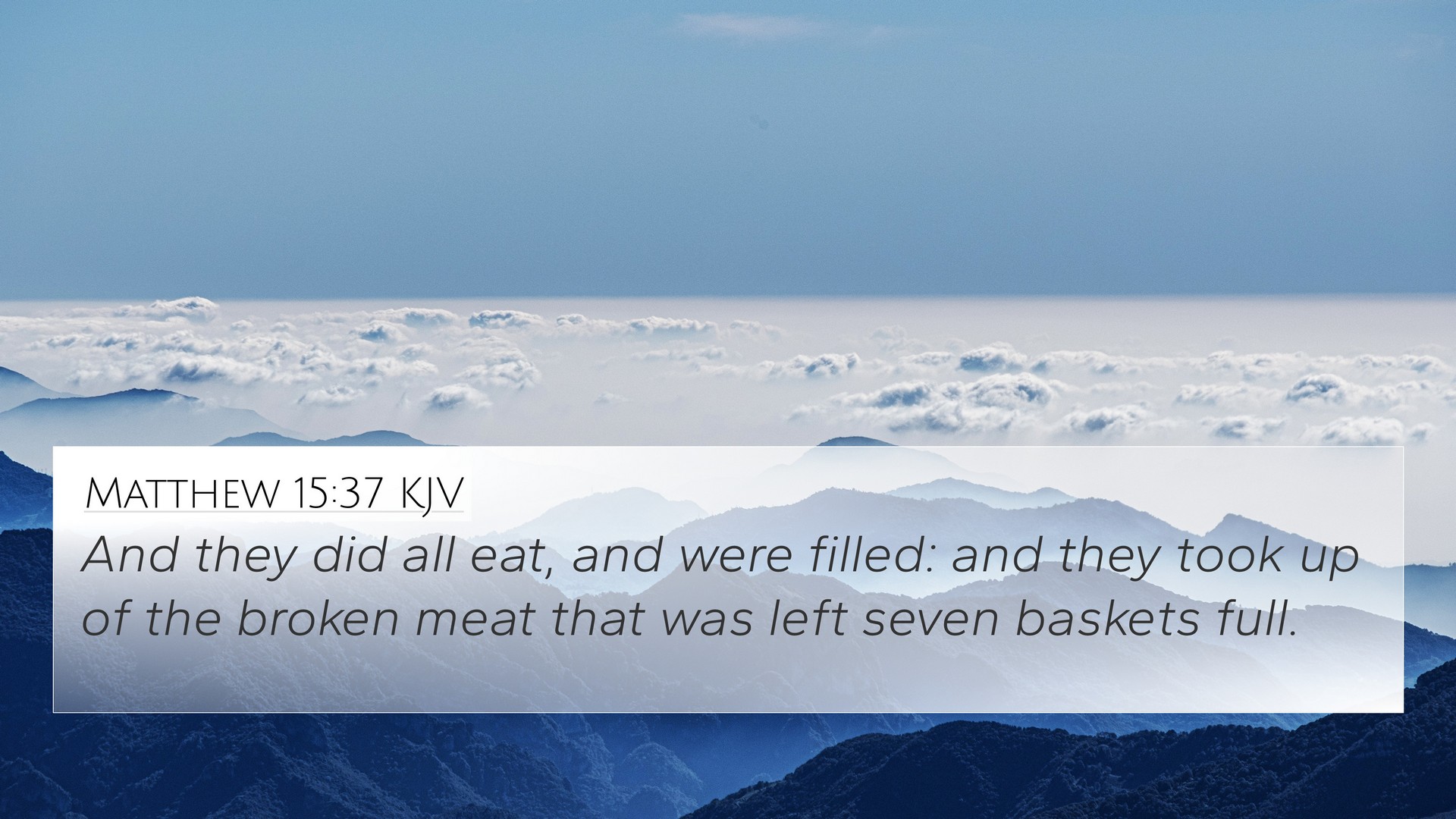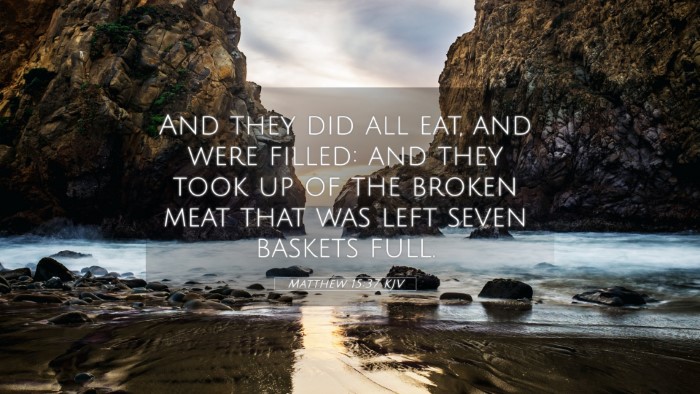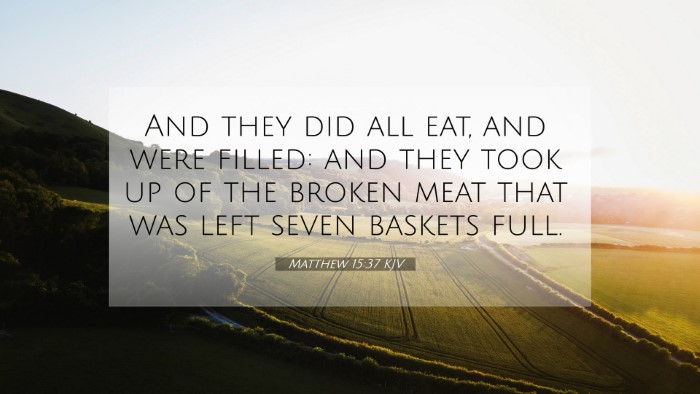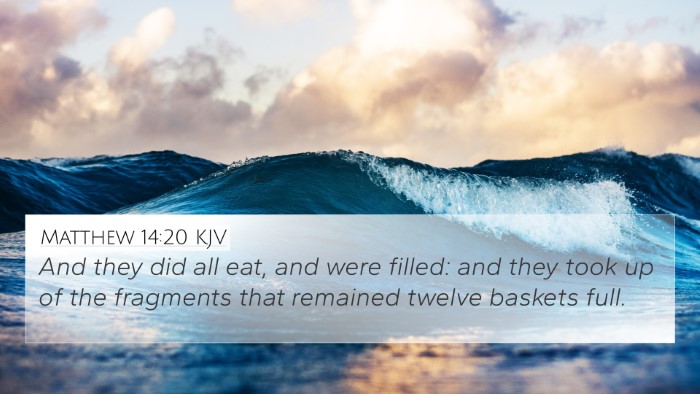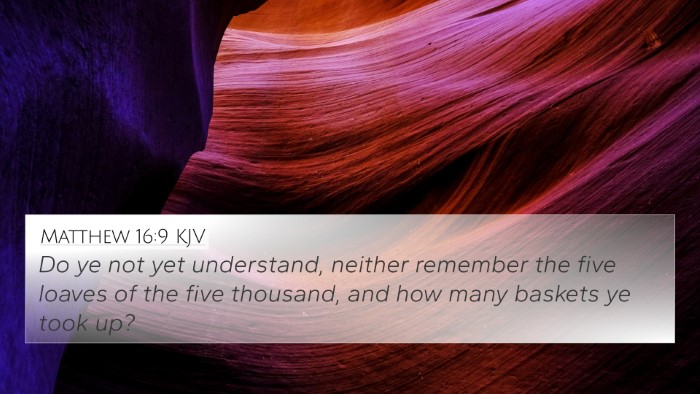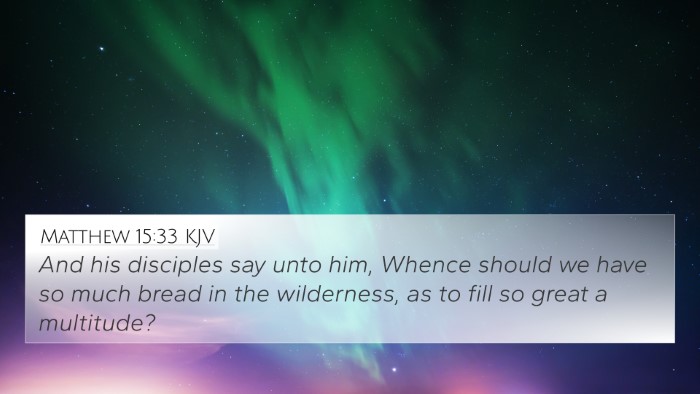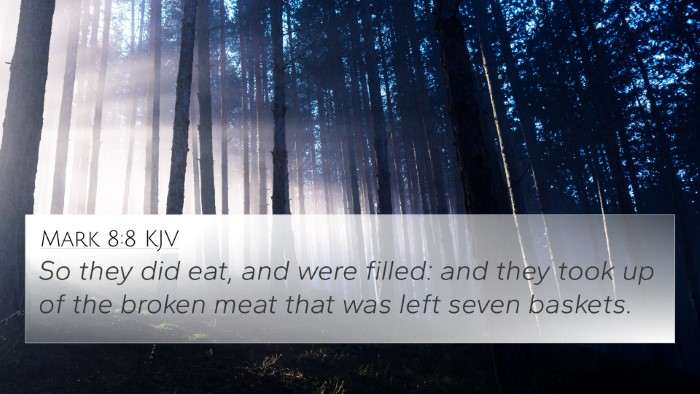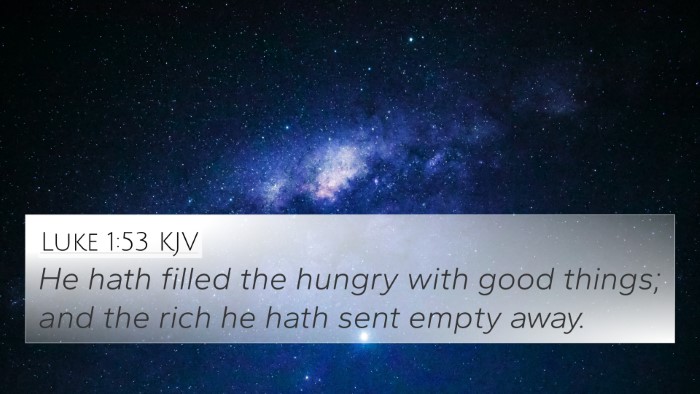Bible Verse Meaning: Matthew 15:37
Matthew 15:37 states, "And they did all eat, and were filled: and they took up of the broken meat that was left seven baskets full." This verse occurs within the narrative of Jesus feeding the multitude, emphasizing His power and compassion.
Summary of Insights from Public Domain Commentaries
The interpretation of this verse by various commentators highlights a few key themes:
-
Matthew Henry: Henry's commentary explains that this miracle illustrates both the providential care of God and the abundance of His goodness. The act of collecting leftovers signifies that Jesus is concerned with not wasting what He provides.
-
Albert Barnes: Barnes emphasizes the significance of the number seven baskets. In biblical numerology, the number seven often represents completeness and divine perfection, indicating that God's provision is both abundant and whole.
-
Adam Clarke: Clarke offers insights into the context of the feeding of the multitudes, noting how this event serves as a demonstration of Jesus' authority over creation and His ability to meet the needs of His followers.
Connections with Other Bible Verses
Matthew 15:37 provides rich opportunities for cross-referencing and linking scriptures to enhance understanding. Below are verses that relate to this passage:
- John 6:1-14: The feeding of the 5,000, a parallel miracle demonstrating Jesus' miraculous powers.
- Mark 6:42-43: Similar account of the miracle and the gathering of leftovers, reinforcing the abundance of God's provisions.
- Psalm 145:15-16: "The eyes of all wait upon thee; and thou givest them their meat in due season," which speaks to God's care for His creation.
- Philippians 4:19: "But my God shall supply all your need according to his riches in glory by Christ Jesus," emphasizing God's promise to meet needs.
- Exodus 16:17-18: The gathering of manna in the wilderness serves as a foundational event demonstrating God's provision for His people.
- Isaiah 25:6: Foretelling a great feast provided by God, linking to themes of divine sustenance and abundance.
- Luke 9:12-17: Another account of the feeding of the 5,000 that provides parallel insights into Jesus' ministry and miraculous abilities.
Thematic Bible Verse Connections
Several broader themes connect with Matthew 15:37:
- Divine Providence: This theme is evident as Jesus provides for the needs of the people, showing God's sustaining nature.
- Abundance and Grace: The seven baskets of leftovers signify God's overflowing grace and generosity.
- Miracles as Signs: The miracle serves as a sign pointing to Jesus' identity as the Messiah and the fulfillment of Old Testament prophecies regarding provision.
- Community & Gathering: The act of collectively feeding the multitude highlights the importance of community and sharing in the Kingdom of God.
Cross-Referencing Biblical Texts
Understanding how Matthew 15:37 interacts with other scriptures can be facilitated through various tools:
- Bible Concordance: A helpful resource for identifying words and themes that appear throughout the Bible.
- Bible Cross-Reference Guide: Provides parallels between verses that deepen the study of scripture.
- Cross-Reference Bible Study: Such study methods allow for comprehensive examinations of themes through scriptural links.
Applying the Understanding of Matthew 15:37
To fully grasp the implications of this passage:
- Reflect on Jesus' Compassion: Consider how this miracle showcases Jesus' love and concern for people's physical and spiritual needs.
- Recognize God's Abundance: Acknowledge the symbolic gathering of leftovers as a reminder of God's capacity to provide adequately for His people.
- Engage in Cross-Referencing: Utilize the listed cross-references to explore deeper meanings and connections within scripture.
Conclusion
Matthew 15:37 encapsulates a profound moment in Jesus' ministry, exemplifying His miraculous capability and deep empathy for human needs. Understanding this verse in conjunction with other biblical texts enriches the reader's faith and comprehension of God's nature as a provider.
